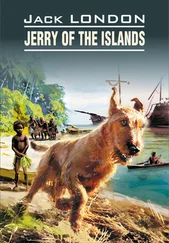‘Friend of the family.’
‘He had no friends or family, that one. Half of them have come to see if they can pinch something back. Fleeced you too, did he? I escaped by sheer luck: got back from the meeting completely convinced and was going to buy my first batch off him when I happened to mention it to that lad over there, the one with curly hair …’
‘And that meeting,’ I said, pronouncing every word with infinite care, as if my tongue were a cactus, ‘didn’t happen to be …’
‘Don’t remind me; they had us down the precinct all night.’
I didn’t hear his account of his terrible night. I was raising my eyes to heaven and murmuring prayers of thanks. Three witnesses in my lap in one go; the dead man had nearly taken them with him to the grave. I couldn’t believe my luck.
‘And why are you …?’
‘Umberto Petraglia, attorney-at-law.’ I wrung his unprepared right hand. ‘I’m gathering evidence to accuse Surprise of murder. That man they killed paid for his last batch of products with a bounced cheque. Looks like some big stunt to put the willies up the other members.’
‘I said it was no accident. And that lad, what’s-his-name, Turkestan …’
‘Tamerlán. César Tamerlán. He’s the one pulling the strings.’
I had no trouble getting the information out of him after that, though he couldn’t remember the name of one of the guests. According to my information, he lived out in the sticks in Tigre and had no phone. Wouldn’t you just know it?
‘Tell me your version of events.’
‘… that Spaniard wittering on and on … those little hand-held cameras … velvet curtains, eh? … Would someone committing suicide jump backwards?’ The last bit was interesting, so I paid more attention: ‘… that’s why we didn’t see his face … He was falling for a while, getting smaller and smaller, looked like he’d disappear before he hit the ground, but he didn’t. He landed on the grass, bounced once and just lay there. Then someone shouted “There he is, that’s the murderer!” Then we all looked up and spotted that Timberland fellow.’
‘Was he wearing a …’ — I thought for a minute — ‘… a grey coat?’
‘He was in his shirtsleeves.’
‘No. The one who shouted.’
‘Oh. A raglan.’
‘Not a Burberry.’
‘No, no. I’m sure it was a raglan. That Taliban was just standing there …’
‘Did the one in the Burb … the raglan shout … after he appeared?’
‘Well, he wasn’t going to shout before, now was he.’
‘No, of course not.’
‘Now you mention it, I did notice something odd. Talisman was standing there in the broken window, right at the edge, but he wasn’t looking down; he was looking straight ahead. At us. And he was smiling. He stood there for about a minute, laughing at us. Now I understand why. You were right. He wanted us to get a good look at him.’
‘Didn’t I tell you?’
‘Then he disappeared into those mirrors. And when we looked down again, the body was gone. All that was left was a dent in the grass. They calculated the whole thing, cold as you like?’
‘They’re professionals. One more question. What bus do I take to the Tigre Delta?’
That’s easy: the 59 two blocks from here to La Lucila, or to Olivos if you prefer, and from there the train to Tigre, and buy a ticket at the boat terminal to …’
* * *
‘900 River Caraguatá please.’
Climbing over two river-buses moored side by side, I reached the one I’d been directed to. I found a seat by the engine — the only place warm enough — and sat there studying the sparse river traffic: the occasional pensioner in a rowing boat, the odd barge laden with willow-wood, the white hulks of catamarans. Beneath us the thick, black water smudged the varnished wood with a tarry foam, every so often burping detergent bubbles up to its iridescent surface. A bloated catfish, surrounded by bobbing grapefruit buoys, floated belly up, the tips of its long whiskers lost in the depths. Two old fellows appeared, hauling a generator laboriously aboard; then a group of boys and girls in white pinafores and school satchels, who sat down all together at the back, and we set off. The boat chugged along until it crossed the undulating line where the fœtid black waters of the Tigre meet the broad umber of the Luján, then it speeded up, so much so that I had to move away from the roaring engine. After half an hour travelling upriver past weekend cottages, shacks, English-style houses (they reminded me of Stanley), thick undergrowth and, on the widest stretches, waving reeds, the boat dropped me at a crooked, wooden jetty. I crossed an unweeded lawn of Mesopotamian grass, fringed like a barcode by the light of a reddish winter sun shining through a distant wood of bare poplars. Behind a row of cypresses, the tips of whose roots peeped out of the ground like a gathering of pixies, appeared a little two-storey tumbledown, stripped and sanded grey by rain and sun, with every appearance of being uninhabited. At the creak of the first stair under my feet an almost imperceptible whine came from out back, so I walked round to have a look. It had come from a skinny dog with a tawny coat, slumped in the mud, so weak that it could barely wag the tip of its tail when it saw me. A few more bites and it would have gnawed through the rope that tethered it to one of the piles, but you could see that, at the last, it hadn’t had the strength; I snapped the rope with a tug. As it couldn’t walk, I picked it up in my arms and carried it round to the front, where I filled a rusty tin with brown water from the pump. It emptied it twice, the second time standing on its wobbling legs, then followed me up the stairs to the front door, which opened with a slight push. In the kitchen there was a full saucepan on the portable gas-stove; despite the smell of rotten stew that billowed out when I uncovered it, I put it on the floor for the dog, which began to bolt it down, wagging its tail now in long arcs. There was a cage by the window, containing a goldfinch with shrivelled eyes, lying on its back on the parallel wires, its clenched claws pointing upwards; on the table was a glass with some tarry-looking dregs of red wine and a fly stuck in them, a clean plate, one place setting, breadcrumbs … The house smelt of bachelor; whoever it was had left unexpectedly, intending to return straightaway, and hadn’t come back. In a rickety chest of drawers in the bedroom, which, beneath a hardboard ceiling that sagged under the accumulated weight of the bat droppings, doubled as a living room, I found a shoebox, wrinkled from the damp, and in it the photo of a man in waders and a checked shirt, hugging a young dark-skinned beauty, twenty years his junior, holding in her arms a little girl wearing pink bows, standing on the neat lawn smiling at the camera in front of the recently white-painted house. Beneath that there were some short pornographic novels for the poor: The Pleasures of the Hammock, Horses and Mares and other such titles, and at the bottom a handwritten receipt torn from an exercise book, whereby one Heberto Luna handed over ownership of the house to a Néstor Soria, and a marriage licence, in which the name ‘Néstor Soria’ was printed in ink in the painstaking calligraphy of the Civil Registry Office, and the woman’s was illegible beneath the biro that had later scrawled ‘whore’ over and around the crossings-out.
In spite of the cold, I decided to wait for the next boat down at the jetty; the dog kept me company the whole time and I knew it was hoping I’d take it with me, so when the boat arrived, I jumped aboard as fast as I could. Through the window I saw it throw itself into the water and swim for a stretch in the churning foam of the wake; I was about to shout to the pilot to turn the boat around when I saw it double back and laboriously climb up the first step of the jetty, shivering and dripping wet. Fortunately the roar of the engine drowned out its barks.
Читать дальше











